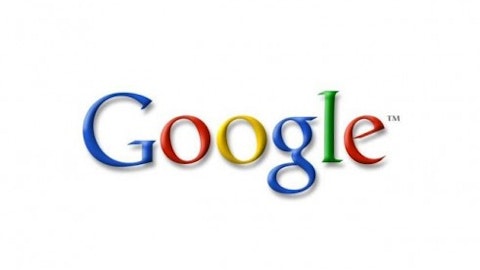Amazon.com, Inc. (NASDAQ:AMZN) is a massive $115 billion e-commerce company that has managed to outpace the NASDAQ Composite by 180 percentage points over the last five years. Amazon started out in the book business, but now sells a multitude of products.
Separating Amazon from many of its tech peers is its strong balance sheet that houses no debt. Amazon’s advantages in the retail sector include superior margins when compared to conventional brick and mortar retailers. The e-commerce company has a strong international segment that has helped counter a moderate slowdown in the U.S. This international segment has seen double-digit growth year over year, thanks in part to Amazon’s introduction of new products in this arena.
In layman’s terms, competition in the e-commerce industry is intense, so price differentiation is key. Thanks to Amazon’s sheer volume, it can capitalize on market share gains by offering industry-low prices. The tech company’s Kindle e-reader has been a key driver when it comes to expanding Amazon’s market in the hardware space, though it hasn’t made quite the dent that many bulls originally hoped. Interestingly, Amazon is one of Ken Fisher’s top tech bets (check out all Ken Fisher’s new picks here).
Being a pioneer in an industry can be great for the company, and a nightmare for analysts. With no perfect competitors, it is hard to judge Amazon on a multiples basis, but we at least attempt to compare other high-growth, top-notch Internet companies to Amazon for valuation purposes.
Top online companies that operate in high-growth markets include eBay Inc (NASDAQ:EBAY), Google Inc (NASDAQ:GOOG), Netflix, Inc. (NASDAQ:NFLX) and Yahoo! Inc. (NASDAQ:YHOO). eBay is one of Amazon’s closest competitors due to its online retail status. This online auction company has seen its stock pushed higher by 70% year to date thanks in part to its payment division PayPal. This should also be eBay’s key driver going forward, helping it meet its expected 5-year earnings growth rate of 14%. eBay is a pick that both billionaire Stephen Mandel and Jim Cramer love (see all of Cramer & Mandel’s picks).
Google, meanwhile, is a search leader with a market-cap nearly double that of Amazon. The company trades the cheapest of the five tech players listed on a forward P/E basis at 16x. Supporting its low valuation is Google’s relatively low expected growth rate of 13%. Google is one of the top-ten stocks loved by hedge funds (see all 10 here). Yahoo is another major search company that operates entirely online. This search company does enjoy the highest gross profit margins of the five tech stocks at 80%.
Billionaire David Einhorn – founder of Greenlight Capital – was one of Yahoo’s newest shareholders, taking an near 5 million share stake (check out David Einhorn’s top picks).
Netflix, Inc. (NASDAQ:NFLX) competes with Amazon in the video streaming market. Although Netflix enjoys gross margins in excess of 70%, recent earnings pressure puts its forward P/E around 220x. Worth noting is that Netflix does carry the most debt of any of the five companies here, with a debt to equity ratio of 60%. The infamous corporate raider Carl Icahn is one of Netflix’s largest shareholders (check out Carl Icahn’s newest picks).
From a valuation standpoint, Amazon looks rich at 145x forward earnings, but we believe that with Amazon’s recent profit margin pressures, trying to value it on a P/E basis is useless due to unusually depressed earnings. Despite being one of the world’s largest online retailers, Amazon continues to boast strong growth prospects – and carries the highest 5-year expected annual growth rate of any of the five stocks at 33%. Even with this superior expected growth, Amazon trades at one of the industry’s lowest P/S ratios at 2x. We believe that a case can be made that Amazon should trade closer to the 5x P/S of eBay, Google and Yahoo.
Now, the stock’s expected growth rate goes a long way to making this case, but it is further supported given the fact that Amazon has no debt, and a top notch ROI of 16% (5-year average). In the simple case of applying Amazon’s current 2x P/S to full year 2012 sales estimates ($62 billion), the stock is still undervalued by almost 6% from its current trading range of $260. Beyond top billionaire shareholder Ken Fisher, other notable billionaires investors owning Amazon include Steve Cohen, D.E. Shaw and George Soros (see George Soros’ newest stock picks).






